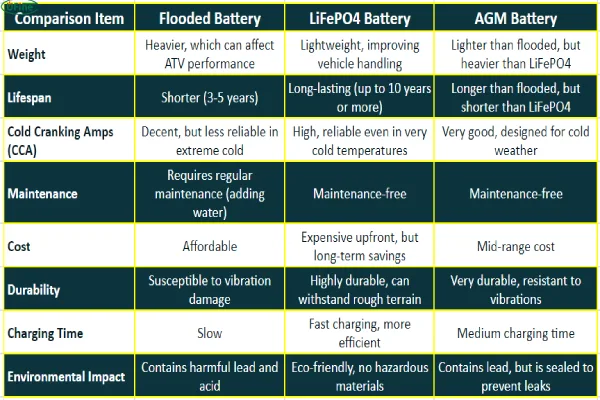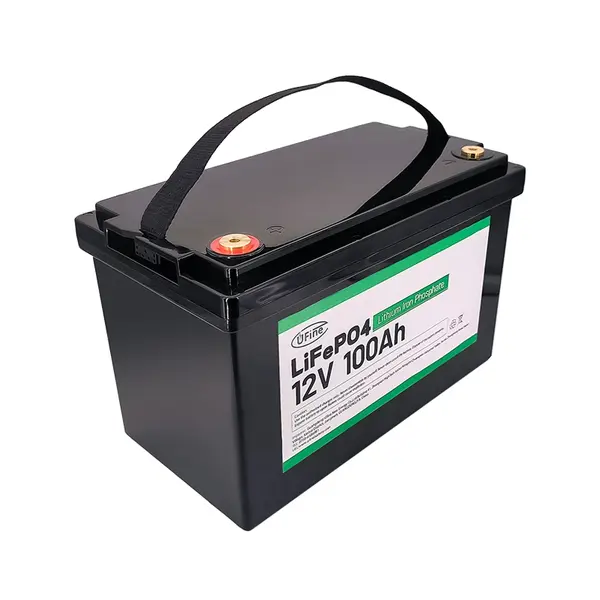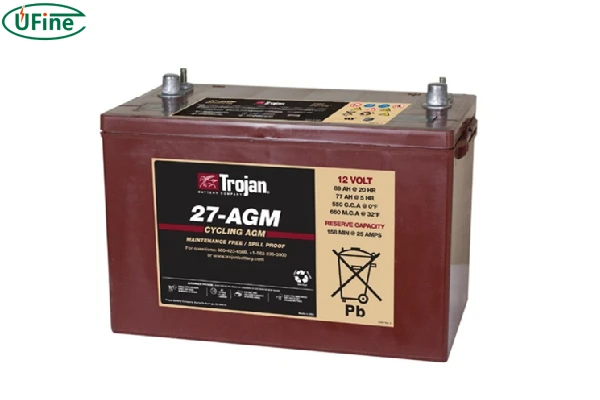All-terrain vehicles (ATVs) are designed to take on the toughest terrains, from muddy trails to rocky paths. But to conquer these adventures, your ATV needs a reliable and durable power source: the battery. The battery you choose for your ATV can greatly impact performance, longevity, and safety. In this article, we’ll take a close look at the different types of all-terrain vehicle batteries—Flooded, LiFePO4, and AGM—so you can decide which is best for your off-road adventures.
Part 1. All terrain vehicle batteries overview
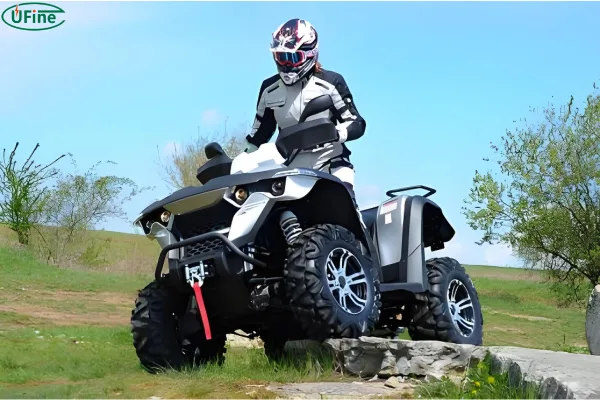
All-terrain vehicles require batteries that can handle rough conditions, from extreme temperatures to constant vibrations. These batteries are designed to power not just the engine, but also auxiliary components like lights, winches, and even sound systems. So, it’s important to choose the right type of battery that can withstand these demands.
There are three main types of batteries used in ATVs:
- Flooded Lead-Acid Batteries: The oldest and most traditional type of battery, which uses a liquid electrolyte.
- LiFePO4 (Lithium Iron Phosphate) Batteries: A newer, lightweight option that provides high performance.
- AGM (Absorbent Glass Mat) Batteries: A sealed lead-acid battery with a special design to prevent leakage and provide higher efficiency.
Each type has its pros and cons, and understanding the differences can help you make an informed decision.
Part 2. All terrain vehicle batteries key consideration parameters
When shopping for an ATV battery, there are several key parameters you need to consider. These factors will determine how well the battery performs in different conditions and how long it will last.
- Cold Cranking Amps (CCA): This measures the battery’s ability to start your vehicle in cold temperatures. A higher CCA means the battery can better handle low temperatures, which is crucial for ATVs used in colder climates.
- Capacity (Amp-Hours, Ah): This indicates how much energy the battery can store. Higher capacity means longer running time for your ATV and its electrical components.
- 무게: The lighter the battery, the less weight your ATV has to carry, improving overall performance. This is particularly important for riders who value speed and agility.
- Durability and Vibration Resistance: Off-roading subjects your vehicle to constant shocks and vibrations, so the battery needs to be able to handle tough terrain.
- 수명: Some batteries last longer than others. While upfront costs may be higher for long-lasting batteries, they can save you money in the long run by reducing replacement costs.
- 유지 관리: Some batteries require regular maintenance, like adding water to flooded lead-acid batteries, while others, like AGM and LiFePO4, are maintenance-free.
- Price: While everyone wants the best battery, cost can be a major factor. Some batteries, like LiFePO4, are more expensive but provide better performance and longevity.
Part 3. Flooded vs LiFePO4 vs AGM battery
Now that we understand the basics, let’s dive deeper into comparing these three types of batteries. Each one has its unique advantages and disadvantages, which we’ll explore below.
Flooded Batteries
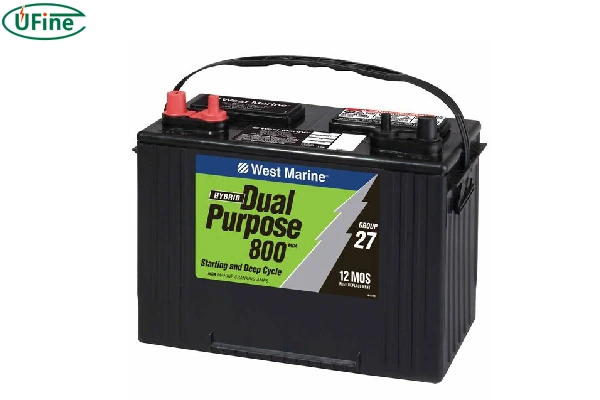
Flooded lead-acid batteries are the most traditional and widely used type for many vehicles, including ATVs. However, they are slowly being phased out in favor of newer technologies. Flooded batteries are affordable and provide a decent performance in moderate conditions. They do, however, require regular maintenance, such as topping off with distilled water, and they are more prone to damage from vibrations and extreme temperatures.
LiFePO4 Batteries
LiFePO4 (Lithium Iron Phosphate) batteries are gaining popularity in the ATV world due to their lightweight nature and long lifespan. They are far more durable than flooded or AGM batteries, particularly in terms of vibration resistance. Additionally, LiFePO4 batteries offer higher energy density, meaning they can store more power in a smaller, lighter package. Although they come with a higher upfront cost, their long life and maintenance-free design can make them more economical in the long run.
AGM Batteries
Absorbent Glass Mat (AGM) batteries are a type of lead-acid battery but with a twist. The electrolyte is absorbed in a glass mat, which prevents leaks and makes them more resistant to vibration damage. They are more durable than flooded batteries and have a longer lifespan. AGM batteries are also maintenance-free, which makes them a convenient option for many ATV owners. They offer a good balance between performance, cost, and ease of use.
Part 4. How to choose the right all terrain vehicle batteries?
Choosing the right battery for your ATV depends on several factors, including your riding style, environment, and budget. Here’s a guide to help you make the best choice:
-
Consider the Climate: If you live or ride in colder climates, you’ll want a battery with high cold-cranking amps (CCA) to ensure reliable starts in freezing temperatures. Both LiFePO4 and AGM batteries perform well in cold conditions.
-
Evaluate Durability Needs: For rugged, off-road adventures, a battery that can handle a lot of vibration is essential. LiFePO4 and AGM batteries offer superior durability compared to flooded batteries, making them better suited for rough terrains.
-
Check Weight Restrictions: If you’re looking for a high-performance ATV and need to reduce weight, go for a LiFePO4 battery. It’s the lightest of the three and can make a noticeable difference in your ATV’s handling and speed.
-
Maintenance Considerations: If you prefer a hassle-free experience, stick with a maintenance-free option like LiFePO4 or AGM. Flooded batteries require regular maintenance and are not ideal if you want to install the battery and forget about it.
-
Lifespan and Long-Term Costs: While LiFePO4 batteries are more expensive upfront, their long lifespan and reliability can save you money in the long run. If you’re planning to keep your ATV for several years, investing in a high-quality LiFePO4 battery could be the best decision.
-
예산: If you’re on a tight budget, a flooded lead-acid battery might be the way to go, but keep in mind the additional maintenance and shorter lifespan. AGM batteries provide a good middle ground, offering better performance than flooded batteries at a reasonable price.
Part 5. 결론
Choosing the right battery for your all-terrain vehicle is crucial for ensuring optimal performance, longevity, and safety. Whether you opt for the affordable flooded battery, the high-performing LiFePO4 배터리, or the balanced AGM 배터리, understanding the key differences between these battery types will help you make an informed decision. By considering factors like weight, cold-cranking amps, durability, and cost, you’ll be able to pick the perfect battery for your next adventure.
관련 태그:
더보기
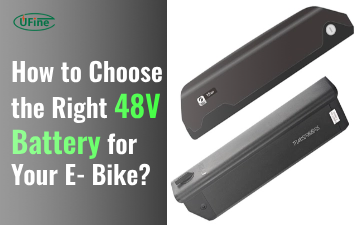
How to Choose the Right 48V Battery for Your E‑Bike?
Choosing the right 48V e-bike battery depends on motor size, usage, chemistry, and safety—this guide helps you make the best decision.
Aluminum Air Battery vs. Lithium‑Ion: Key Cost & Performance Differences
Aluminum air vs lithium-ion: non-rechargeable but high energy density vs. rechargeable and widely used in EVs, electronics, and storage systems.
Aluminum Air Battery Design: Materials, Assembly & Efficiency Tips
An aluminum air battery uses aluminum and air to generate power. Learn its materials, assembly steps, and tips to boost energy output and efficiency.
7 Advantages of a Heated Lithium Battery in Cold Climates
Looking to power batteries in freezing temps? Heated lithium batteries excel in cold climates. Here are 7 key benefits and how they work.
How to Choose the Best Floor Scrubber Battery for Commercial Cleaning?
Selecting the ideal floor scrubber battery ensures a long runtime, rapid charging, and minimal maintenance for efficient commercial cleaning operations.
